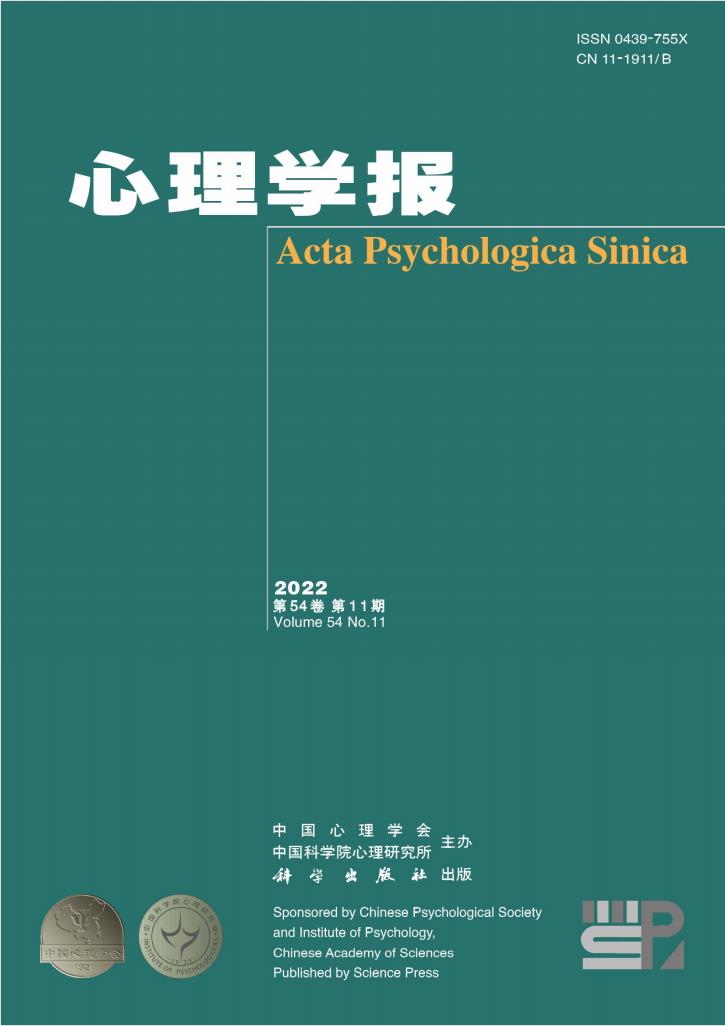The mediating effect of aggression motivation on the relationship between trait anger and reactive aggression: A longitudinal study
IF 1.3
4区 心理学
Q3 PSYCHOLOGY, MULTIDISCIPLINARY
引用次数: 7
Abstract
Trait anger is a widely recognized susceptibility personality factor for reactive aggression. However, to the best of our knowledge, the longitudinal effect of trait anger on reactive aggression is unclear. More importantly, even though reactive aggression differs from proactive aggression by their motivations, the motivation mechanism underlying the effect of trait anger on reactive aggression is not known. Thus, the present study attempts to explore the longitudinal effect of trait anger on reactive aggression, and the mediating role of reactive aggression motivation, as well as the relationship between the two different motivations. Reactive aggression refers to the behavior or tendency to respond to perceived provocation with hostile and angry feeling. It is also called impulsive, hostile, or hot-blooded aggression. The motivation of the reactive aggression is comprised of hostile motivation (unique motivation) and moral approval motivation (common motivation). Hostile attribution bias is a typically representative variable of hostile motivation, and moral disengagement is the representative variable of moral approval motivation. A three-wave longitudinal study with the time interval of 6 months was conducted to test our hypotheses. A total of 1007 undergraduates (mean age = 19.00 years, SD = 0.99) from 5 provinces in China completed a series of questionnaires concerning trait anger, hostile attribution bias, moral disengagement, reactive aggression, and proactive aggression in their classrooms. SPSS 20.0 was used to conduct churn rate, reliability, and common method bias tests, and to calculate descriptive statistics. Mplus 7.0 was used to conduct item parceling and structural equation modeling. A cross-lagged model was developed for trait anger predicting reactive aggression from hostile attribution bias and moral disengagement. Moreover, longitudinal relationships among trait anger, hostile attribution bias, moral disengagement, and proactive aggression were also tested. The results indicate that there is no serious churn problem for participants, for all variables considered. All measurements show good reliability, and there is no serious common method bias. Moreover, trait anger at Wave 1 significantly predicts hostile attribution bias and moral disengagement at Wave 2, hostile attribution bias and moral disengagement at Wave 2 significantly predict reactive aggression at Wave 3, moral disengagement at Wave 1 significantly predicts hostile attribution bias at Wave 2, and hostile attribution bias at Wave 2 significantly predicts moral disengagement at Wave 3. After controlling for gender, trait anger at Wave 1 significantly predicts reactive aggression at Wave 3 through hostile attribution bias and moral disengagement at Wave 2. Furthermore, the path of hostile attribution bias predicting proactive aggression is non-significant. Moral disengagement at Wave 1 significantly predicts proactive aggression at Wave 2. This study supports that idea that trait anger would facilitate reactive aggression, and further suggests that trait anger could longitudinally predict reactive aggression through the mediating role of reactive aggression motivation (including hostile motivation represented by hostile attribution bias and moral approval motivation represented by moral disengagement). The present study constructs a motivational model of personality and reactive aggression, and hence develops the theories and study of personality and aggression. Moreover, the findings of this study suggest that prevention of, and interventions for, reactive aggression could usefully focus on the personality and motivational factors of aggression.攻击动机对特质愤怒与反应性攻击关系的中介作用:一项纵向研究
特质愤怒是公认的易受反应性攻击影响的人格因素。然而,据我们所知,特质愤怒对反应性攻击的纵向影响尚不清楚。更重要的是,尽管反应性攻击与主动性攻击的动机不同,但特质愤怒对反应性攻击影响的动机机制尚不清楚。因此,本研究试图探讨特质愤怒对反应性攻击的纵向影响,反应性攻击动机的中介作用,以及两种不同动机之间的关系。反应性攻击是指对感知到的带有敌意和愤怒情绪的挑衅做出反应的行为或倾向。它也被称为冲动、敌对或热血攻击。反应性攻击的动机包括敌对动机(独特动机)和道德认同动机(共同动机)。敌意归因偏差是敌意动机的典型代表变量,道德脱离是道德认同动机的代表变量。为了验证我们的假设,进行了一项时间间隔为6个月的三波纵向研究。来自中国5个省份的1007名本科生(平均年龄19.00岁,SD=0.99)在课堂上完成了一系列关于特质愤怒、敌对归因偏见、道德脱离、反应性攻击和主动性攻击的问卷调查。SPSS 20.0用于进行流失率、可靠性和常用方法偏差测试,并计算描述性统计数据。使用Mplus 7.0进行项目分组和结构方程建模。建立了一个跨滞后模型,用于预测来自敌对归因偏见和道德脱离的反应性攻击。此外,还测试了特质愤怒、敌对归因偏见、道德脱离和主动攻击之间的纵向关系。结果表明,对于所有考虑的变量,参与者不存在严重的流失问题。所有测量都显示出良好的可靠性,并且没有严重的常见方法偏差。此外,第1波的特质愤怒显著预测第2波的敌意归因偏见和道德脱离,第2波中的敌意归因偏差和道德脱离显著预测第3波中的反应性攻击,第1波中的道德脱离显著预示第2波时的敌意归因偏误,第二波的敌对归因偏见显著预测了第三波的道德脱离。在控制性别后,第1波的特质愤怒通过第2波的敌对归因偏见和道德脱离显著预测了第3波的反应性攻击。此外,敌意归因偏差预测主动攻击的路径并不显著。第1波的道德脱离显著预测了第2波的主动攻击。本研究支持了特质愤怒会促进反应性攻击的观点,并进一步表明,特质愤怒可以通过反应性攻击动机(包括以敌对归因偏见为代表的敌对动机和以道德脱离为代表的道德认可动机)的中介作用纵向预测反应性攻击。本研究构建了人格和反应性攻击的动机模型,从而发展了人格和攻击的理论和研究。此外,这项研究的结果表明,预防和干预反应性攻击可以有效地关注攻击的个性和动机因素。
本文章由计算机程序翻译,如有差异,请以英文原文为准。
求助全文
约1分钟内获得全文
求助全文
来源期刊

心理学报
Psychology-Psychology (all)
CiteScore
1.70
自引率
13.30%
发文量
1612
期刊介绍:
Acta Psychologica Sinica (ISSN 0439-755X) is a scholarly journal sponsored by the Chinese Psychological Society and the Institute of Psychology, Chinese Academy of Sciences, and published monthly by the Science Press.
Acta Psychologica Sinica has been included in many important national and international indexing systems such as SCOPUS (Elsevier), ESCI (Web of Science), PsycINFO (APA), CSCD. It is the flagship journal of the Chinese Psychological Society that publishes peer-reviewed original empirical studies and theoretical articles spanning the entire spectrum of scientific psychology.
Acta Psychologica Sinica publishes high-quality research that investigates the fundamental mechanisms of mind and behavior and aims to deliver scientific knowledge to enhance our understanding of culture and society. It welcomes submissions of manuscripts reporting research that is up-to-date, scientifically excellent, and of broad interest and significance.
 求助内容:
求助内容: 应助结果提醒方式:
应助结果提醒方式:


